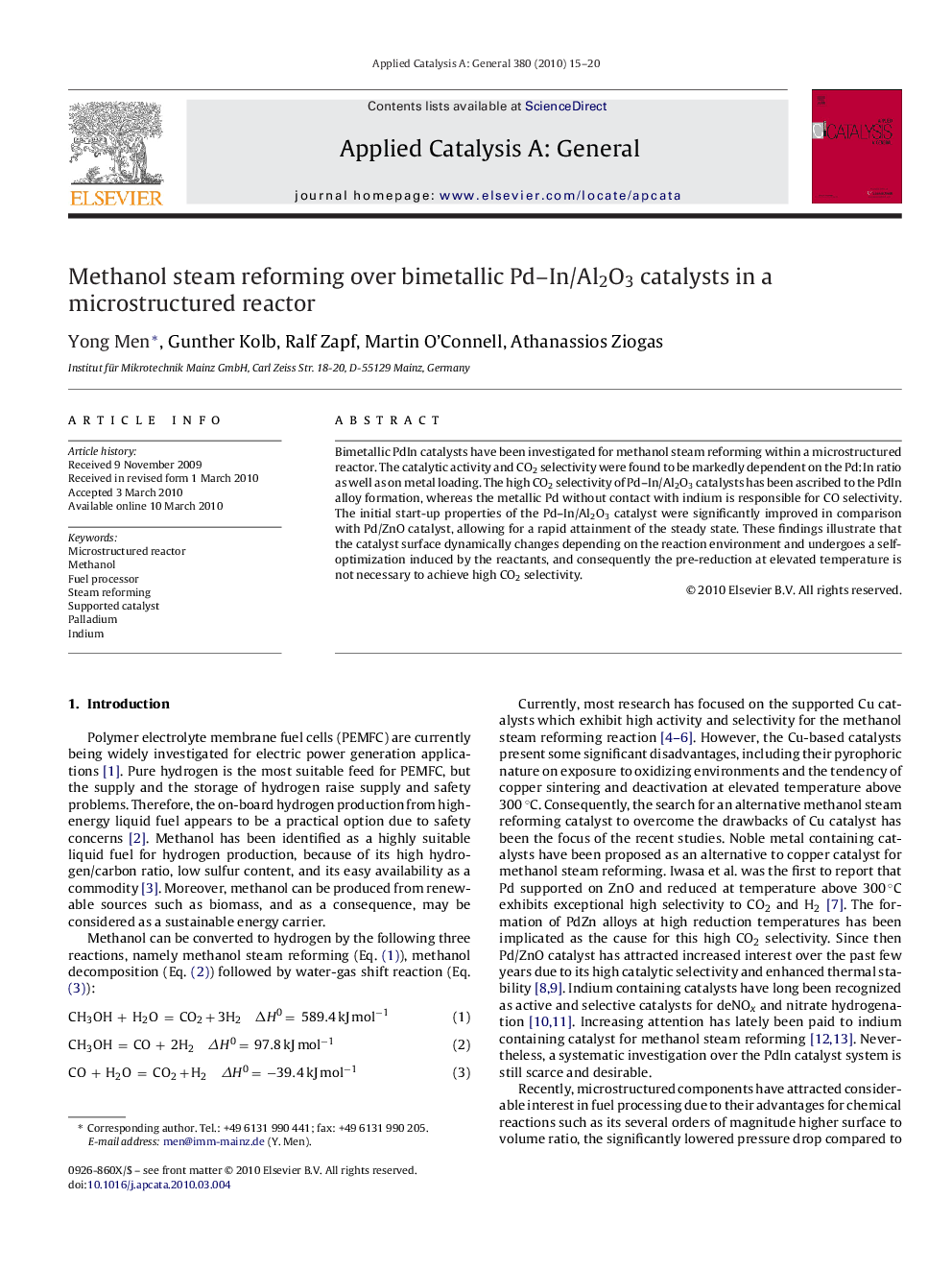| Article ID | Journal | Published Year | Pages | File Type |
|---|---|---|---|---|
| 41849 | Applied Catalysis A: General | 2010 | 6 Pages |
Bimetallic PdIn catalysts have been investigated for methanol steam reforming within a microstructured reactor. The catalytic activity and CO2 selectivity were found to be markedly dependent on the Pd:In ratio as well as on metal loading. The high CO2 selectivity of Pd–In/Al2O3 catalysts has been ascribed to the PdIn alloy formation, whereas the metallic Pd without contact with indium is responsible for CO selectivity. The initial start-up properties of the Pd–In/Al2O3 catalyst were significantly improved in comparison with Pd/ZnO catalyst, allowing for a rapid attainment of the steady state. These findings illustrate that the catalyst surface dynamically changes depending on the reaction environment and undergoes a self-optimization induced by the reactants, and consequently the pre-reduction at elevated temperature is not necessary to achieve high CO2 selectivity.
Graphical abstractBimetallic Pd–In/Al2O3 catalysts wash-coated on microchannels were found to exhibit excellent methanol steam reforming activity, selectivity, and stability. High CO2 selectivity has been correlated with the active PdIn alloy phase, as confirmed by XRD measurements.Figure optionsDownload full-size imageDownload high-quality image (111 K)Download as PowerPoint slide
